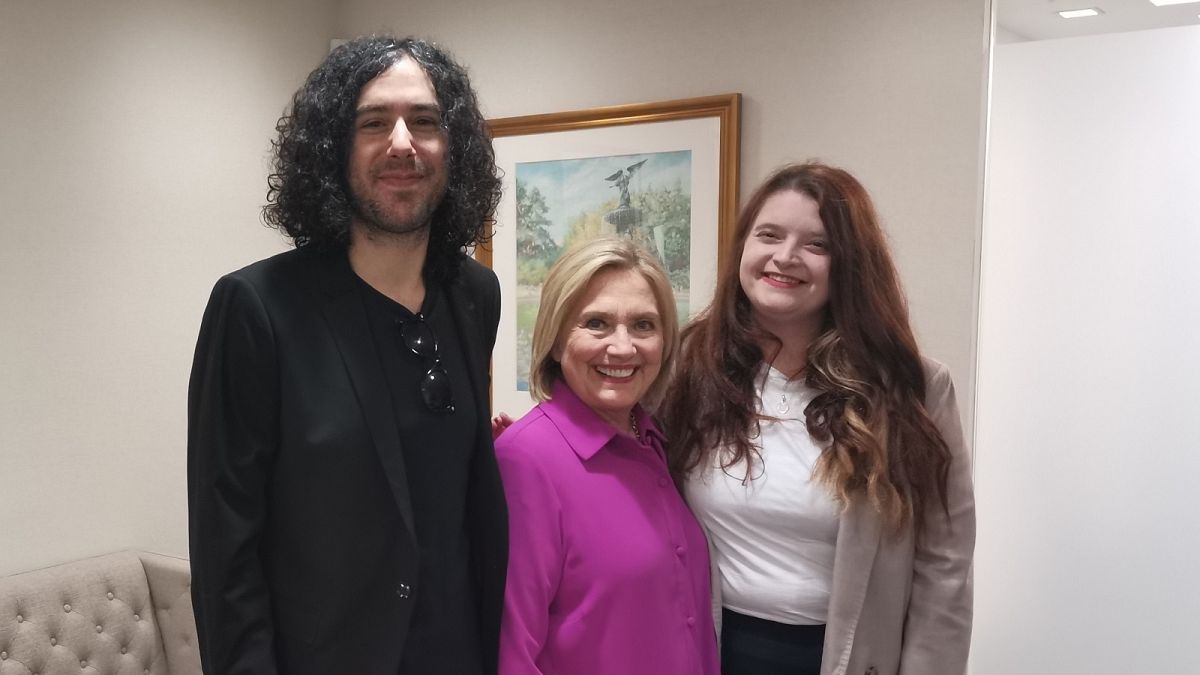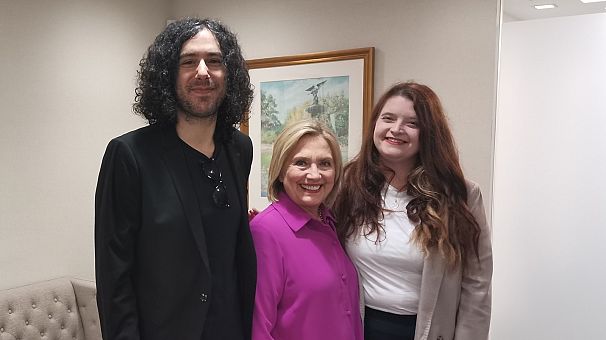In the face of a British government abdicating its responsibilities to the Northern Ireland peace accord, the people of Northern Ireland are turning once again to the US.
In the face of a British government abdicating its responsibilities to the Northern Ireland peace accord, the people of Northern Ireland are turning once again to the US.
The US has a vested interest in peace in Northern Ireland, having had a pivotal role in the talks that led to the 1998 Good Friday Agreement. The agreement is widely seen as a model of peace, cooperation and compromise. It was the culmination of years of extensive negotiations, which required the intervention of the Irish, British and American governments in order to convince the vast majority of regional political parties to make a profound leap of faith.
The US has since taken on the role of a firewall; as Northern Ireland faces its greatest challenge since the 1998 agreement, Congress has stepped up its defence mechanisms. While the UK wants a trade deal with the US and Trump wants a trade deal with Johnson, the Congress has the power to block such a deal and has made clear that any Brexit deal must protect the Good Friday Agreement in all of its components.
The agreement was not the end but the beginning of a process to reshape and redefine a region fractured by decades of violence and conflict. Whilst trade continues to dominate the headlines, a core principle of the Good Friday Agreement has continued to deteriorate. Article 1 of the Good Friday Agreement provides the people of Northern Ireland with an explicit right to identify and be accepted as Irish or British or both, as they so choose. The right to self-determination is enshrined in the European Convention on Human rights; identity and freedom from government interference in our private lives has long been accepted as a basic human right. The concept of identity might remain a hotly-debated area of academia but protecting it has not. Identity is complex, in post-conflict zones even more so, of which Northern Ireland is one. The Good Friday Agreement, a bilateral international peace treaty between two sovereign governments registered at the UN, sought to protect the identity of two opposing communities and therefore remove identity as a source of conflict.
Born out of that agreement was a peace accord founded on the principles of equality and mutual respect, with an onus on the co-guarantors to protect and enshrine these foundations into domestic policy and practice. A complex combination of legislation, reform and good will has been essential to the creation of newly-formed institutions, all of which flourished under the protective blanket of EU law. As a co-guarantor of the agreement, the British government was required, under its international obligations, to give domestic legal effect to all relevant provisions of the Good Friday Agreement – yet there is no mention of the unique identity and citizenship provisions in domestic UK law.
For going on half-a-decade now, the British government have questioned my identity and tasked me with answering a seemingly unanswerable question– what is the worth of an identity? I’ve been repeatedly interrogated on the subject, as the British Home Office insist that I am a British citizen, having been born in Northern Ireland.
I am an Irish citizen, in a manner beyond nationality, yet I’ve personally found myself – along with my American husband - in court arguing for the protection of Article 1 of the Good Friday Agreement, seeking full recognition of the right to be accepted as Irish, and calling for the full implementation of the Good Friday Agreement. Rather than a right to be accepted as Irish, the British government contends that the people of Northern Ireland are permitted to identify on a personal level as Irish, yet are in fact British at birth. I have never held a British passport nor claimed a British identity. Yet, at the behest of the British government, I’ve been forced to quantify before its courts the weight of my Irish identity; to dissect it and outline every moment in my life in which said Irish identity was evident- all in order to contest the foisted conferral of a citizenship I neither wanted nor claimed. The British government refuses to accept that I am an Irish citizen only and have always been such, instead choosing to disregard a fundamental tenet of an international agreement and absolve itself of obligations to both the people of Northern Ireland and upholding international law.
This sets a dangerous legal precedent (especially in the context of Brexit), reducing an integral right to choose one’s own national identity – in this case, to identify as and be accepted as Irish – into a right to merely “feel” Irish. The argument put forward by the British government also highlights how tenuous an already fragile bond can be rendered, when a government is permitted to relieve itself of its own accountability in upholding the agreements it made under internationally-binding treaties. Concern over UK compliance with the withdrawal agreement is not baseless; the British government has shown wanton disregard for its obligations by pursuing a misreading of the birthright provisions of the Good Friday Agreement in our case.
Ireland amended Article 2 of the constitution and transformed its nationality laws so as to align itself with the commitments made under the Good Friday Agreement. The UK, by contrast, has resisted a number of the agreement’s rights-based provisions. It has not only failed to implement the “birthright provisions,” as they are known, but is today contesting the very purpose and intent of the provisions in the courts.
When this case began, the British government had two choices: amend domestic UK law in accordance with its obligations under international law, or repudiate them. Choosing the latter, the British government opted instead to rewrite their obligations in lieu of implementing the provisions into legislation. In a bid to place British sovereignty above all else (including international obligations), the British Government has set itself on a path to rewrite a key provision of the Good Friday Agreement without the consent of the people of this island.
Identity in Northern Ireland cuts across religion, political expression and national identity, leaving all citizens of- and around- the region vulnerable. Everyone within the region maintains their rights at the whim of a government which wilfully ignores the delicate identity balance that exists in Northern Ireland. Imposing citizenship upon those who do not want it serves only to harden identities, and for the past two decades - thanks only to the blanket of EU law and the Good Friday Agreement - Irish citizens, British citizens and anyone in-between, have had an open space to slowly soften identity lines. The British government and its hostile policies will see this work undone if allowed to proceed unopposed.
Brexit creates barriers; to trade, to rights, to the Good Friday Agreement. And whilst there may have been a time when warm words sufficed thanks to our protective EU blanket, they won’t suffice in a post-Brexit scenario where legislative gaps will leave those most vulnerable exposed. Irish citizens, in the face of a British government that is abdicating its responsibilities to the people of Northern Ireland, turn once again to the United States government to safeguard their rights.
The issue of identity and citizenship under the agreement may arise as a point of contention during trade talks. US support for the Good Friday Agreement has been unwavering. Now, against the backdrop of Brexit, it’s fast becoming a lifeline for the people of Northern Ireland.
- Emma DeSouza is an immigration and citizens’ rights campaigner from Northern Ireland.
____________
Are you a recognised expert in your field? At Euronews, we believe all views matter. Contact us at view@euronews.com to send pitches or submissions and be part of the conversation.

